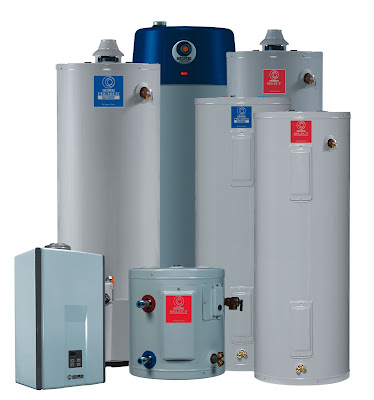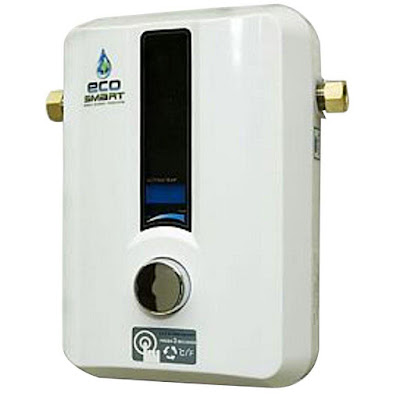Water heaters are probably one of the most widely used appliances today. These are now almost considered as a necessity in homes, restaurants, clubs, hotels and many other places. Although water heaters have been used since many decades in countries that experience extensive cold conditions, in countries such as India, where large parts experience very little cold conditions, the scenario is also changing, with these heaters now being commonly used. The primary reason for this can be attributed to the requirement of instantaneous delivery of hot water being prevalent in our day to day lives. It won't be wrong to assume that water heaters are an appliance that every homeowner thinks about buying today. Owing to this, water heater manufacturers & water heater suppliers are increasingly offering heaters that suffice every requirement.

Water heaters have greatly evolved since the time they were first used more than a century ago. Today, these heaters are available in a wide range of dimensions, working mechanisms, storage capacity and many more. Some of the commonly used water heaters today are gas water heater, thermic fluid heater, electric water heater, water immersion heaters, commercial water heaters and many more. With extensive research underway in regards to the design & functionality of water heaters and with water heater manufacturers getting more and more inventive, we can be rest assured that these heaters are only going to get better in future, with marked increase in their performance and other aspects.
Water heaters: How have they evolved
The earliest references to the usage of water heaters are from the year 1868. A painter named Benjamin Waddy Maughan invented a water heater that provided instant delivery of hot water. The water heater did not use solid fuel, with it's modus operandi being making cold water flow through pipes that were heated by gases from a burner installed at the bottom. This is the earliest known reference of the use of instantaneous water heaters. Afterwards, extensive experiments by various people and organizations were underway to further improve on the water heater developed by Benjamin Waddy Maughan. In 1889, an engineer named Edwin Rudd built the first automatic, storage tank type gas water heater. Since then, these heaters have undergone innumerable advancements & changes in design and as mentioned above are constantly evolving even today.
Attributes all water heaters should have:
- Water heaters should have the requisite safety features to prevent any untoward incident. A majority of water heater manufacturers give utmost emphasis to this requirement
- These heaters should have optimal power efficiency
- These should have the requisite tolerance to shocks & vibrations
- A majority of water heaters today are built in such a way that they are easy to install
- All water heater manufacturers emphasize on ensuring that the heater has a long functional life and requires minimal maintenance
- If the water heater has a storage tank, then it should be well insulated to ensure minimal heat loss, thus increasing overall energy efficiency
Types of water heaters and how they work:
Depending on some basic differences such as how are they powered, do they have a storage tank or not?, water heaters can be classified into three major types, these are,
- Tank type water heaters – Tank type water heaters are distinguished by the fact that not only they heat water, they also have a storage tank for the purpose of the storing the heated water. All tank type water heaters are equipped with the requisite insulation to ensure the water stays warm. The basic working method of these heaters is that these have a supply pipe and delivery pipe. The supply pipe supplies water to the bottom of the storage tank while the delivery pipe delivers hot water from the top of the tank. For safety, all water heater manufacturers equip these heaters with a T & P valve, also called as temperature & pressure relief valve

- Electric water heaters – Electric water heaters are equipped with an electrical unit that passes through electrical resistant heating elements. These heating elements enable the conversion of cold water into hot water. Electric water heaters have thermostats through which water heating temperature can be set
- Fuel fired water heaters – Fuel fired water heaters are also referred to as gas fired heaters. These heaters have a burner that's fed gas by a control valve & a thermostat switch. The burner is located below the tank and the tank has hollow cores to enable the exhaust gases to vent. The working methodology of these tanks is simple, the burner heats the tank, in turn heating the water stored inside it.

A definitive guide to buying water heaters:
Things you should check and decide on before buying water heaters,
- Decide on which type of water heater you want, it's source of energy ( whether electrical or LPG )
- Always try and buy a water heater with a higher star rating, since a higher star rating ensures higher energy efficiency
- Decide on the size of water heater you want, a larger size heater is suited for a large family or for those who use bathtubs, otherwise a smaller sized heater would suffice
- Other important parameters to consider before buying a water heater is the usage of hot water, climate ( it takes time to heat water in colder climates, so for people living in cold climates, water heaters with a large storage capacity are ideal )
- An important factor to take note of is the first hour rating, I. E – the amount of hot water that can be delivered by the water heater in one hour
- While choosing, installing and using water heaters, always give utmost emphasis on safety, such as ensuring no flammable materials are kept nearby the heater, using the drain valve to completely flush the water heater, completely following manufacturer guidelines etc.


